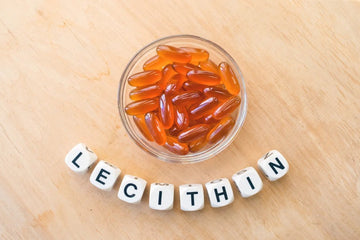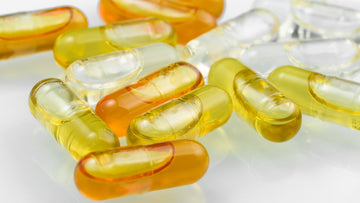1. What is Lecithin?
Phospholipids are essential components of biological and cellular membranes in nature. They play a vital role in numerous physiological processes such as cellular transport and metabolism. Their importance is particularly evident in the brain and nervous system, circulatory system, and immune system.
Lecithin is an essential nutrient for the human body and is often referred to as the “third nutrient” alongside proteins and vitamins. It is a naturally occurring fatty substance found in many foods, with high concentrations in egg yolks and soybeans.
Soy lecithin is a mixture of phospholipids, including:
-
Phosphatidylcholine (PC)
-
Phosphatidylethanolamine (PE)
-
Phosphatidylinositol (PI)
-
Phosphatidylserine (PS)
It also contains various fatty acids, and is widely known as the “vascular cleaner” due to its beneficial effects on cardiovascular health.
2. Benefits of Lecithin
① Cardiovascular Support
Phosphatidylcholine can help lower cholesterol levels in the blood and reduce the risk of atherosclerosis, thereby improving heart and vascular health.
✅ One study found that taking soy lecithin supplements for two months resulted in a 42% reduction in total cholesterol and a 56.15% reduction in LDL cholesterol.
② Liver Protection
Lecithin aids in fat metabolism and reduces fat accumulation in the liver, helping to prevent liver damage—particularly beneficial for individuals with non-alcoholic fatty liver disease (NAFLD).
③ Cognitive Function Improvement
Choline, a key component of lecithin, is a precursor of the neurotransmitter acetylcholine, crucial for maintaining brain health and cognitive performance.
Studies suggest that phosphatidylserine and phosphatidic acid derived from soy lecithin may positively influence memory, cognition, and mood in older adults.
④ Immune System Support
Components in soy lecithin may enhance immune function and improve the body’s ability to resist illness.
3. Dosage and Safety of Lecithin
The typical recommended daily dosage for lecithin supplements ranges from 1,200mg to 2,400mg, though individual needs may vary.
👉 Consult a healthcare provider before starting supplementation.
Potential side effects may include:
-
Diarrhea
-
Nausea
-
Stomach discomfort
-
Feeling of fullness
Caution: People with egg or soy allergies should avoid lecithin.
Lecithin is generally considered safe.
📌 According to reports from the U.S. FDA and the Joint FAO/WHO Expert Committee, taking 22–38 grams of lecithin per day for 2–4 months showed no adverse effects.
4. How to Identify High-Quality Lecithin
✅ Key characteristics of good lecithin:
① Heat-sensitive:
Exposure to temperatures above 50°C can gradually destroy its biological activity.
☕ Best consumed with warm (not hot) water.
② High purity = better absorption.
🔍 What to look for in premium soy lecithin capsules:
-
Brown, clear, and transparent capsules
-
No sediment or visible impurities
-
Mild nutty aroma
-
Smooth surface
A slight stickiness that resolves with gentle shaking is normal.
⚠️ Avoid products showing:
-
Leakage
-
Permanently stuck capsules
-
String-like residue when separated
These may indicate temperature-related soft capsule damage or poor quality.
🌿 Choose Clean, Organic Lecithin
With growing concern over food safety, additives, organic solvents, and heavy metal residues, it is essential to choose natural, additive-free soy lecithin—free from organic solvents and heavy metals.

👉 Explore our Organic Soy Lecithin Capsules — made with non-GMO soybeans, USDA Organic Certified, and crafted in liquid-filled capsules for optimal absorption.







